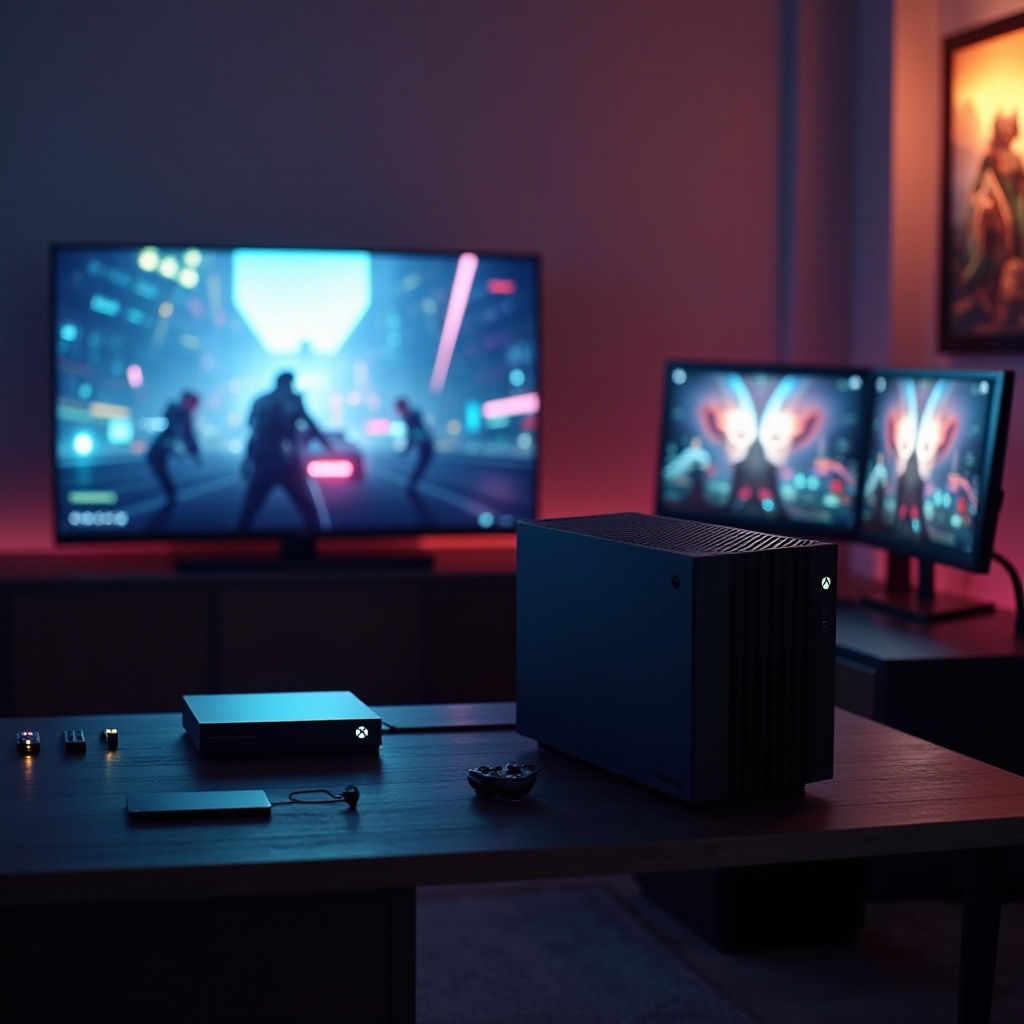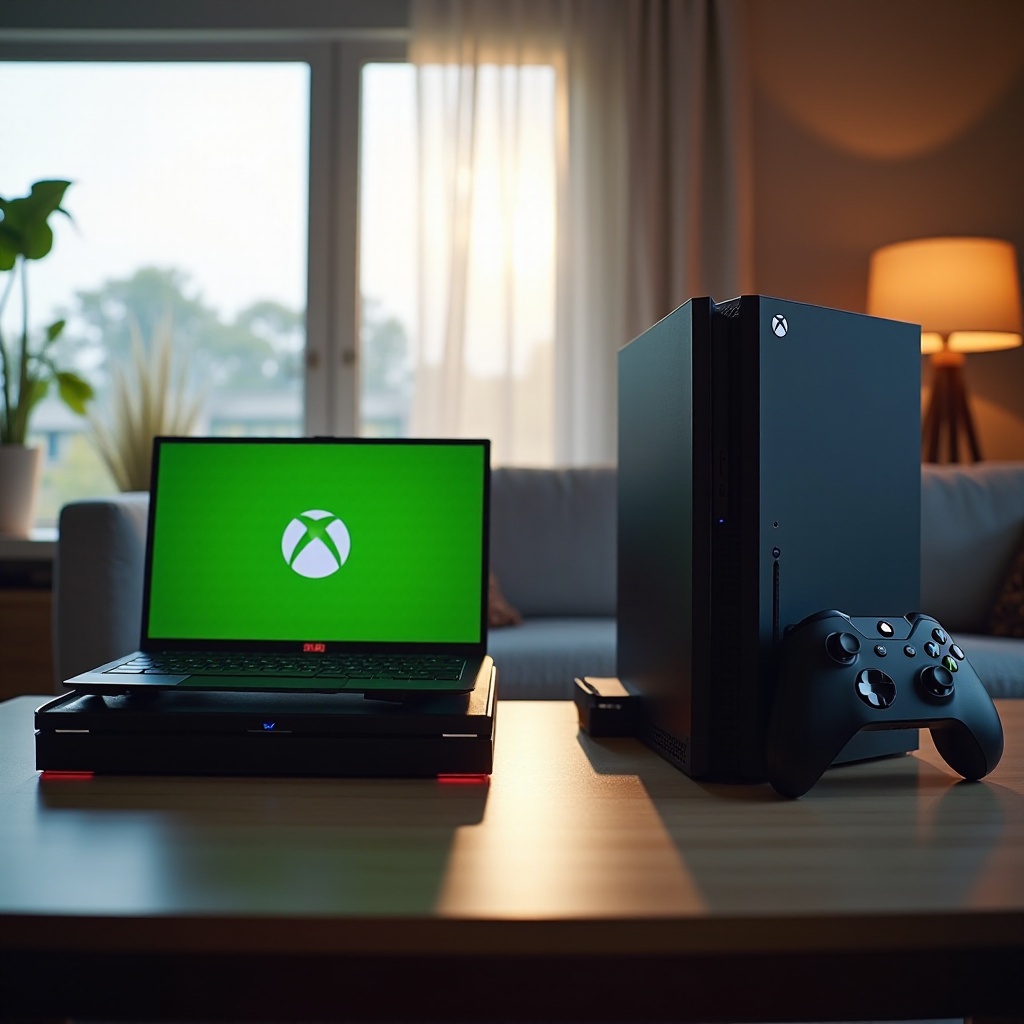Is Xbox and PC Xbox the Same?
Introduction
Gaming enthusiasts often face the dilemma of choosing between an Xbox console and Xbox on PC. Both platforms offer unique experiences that cater to various preferences. With the rise of Xbox Game Pass and Xbox Play Anywhere, the lines between console gaming and PC gaming have blurred. This article delves into the key differences and similarities between Xbox and Xbox on PC, helping you make an informed decision about which platform best suits your gaming needs.

What is Xbox Console?
The Xbox console is a line of gaming consoles developed by Microsoft, designed specifically for gaming and multimedia. Since its launch in 2001, Xbox has evolved through multiple generations, with the latest models being Xbox Series X and Xbox Series S. These consoles provide a seamless gaming experience with high-resolution graphics, exclusive titles, and advanced features such as quick resume and smart delivery.
Key features of Xbox consoles include: 1. High-performance hardware: Customized AMD processors, powerful graphics cards, and fast SSD storage. 2. Exclusive games: Titles such as 'Halo', 'Gears of War', and 'Forza Horizon. 3. User-friendly interface: A straightforward navigation system designed specifically for gaming. 4. Controller support: Ergonomically designed controllers offering a comfortable and responsive gaming experience.
In essence, the Xbox console offers a dedicated gaming setup with hardware and software optimized for maximum performance.
What is Xbox on PC?
Xbox on PC refers to the integration of the Xbox ecosystem within the Windows operating system, allowing PC gamers to access Xbox services and play Xbox games on their computers. This is primarily facilitated through Xbox Game Pass for PC and the Xbox app, providing a library of games that can be downloaded and played on a PC.
Features that define Xbox on PC include: 1. Cross-platform play: Enables players to engage with friends on Xbox consoles. 2. Game Library: Access to a vast collection of games through Xbox Game Pass for PC. 3. Customizable settings: Advanced settings for graphics, performance, and controls tailored to PC hardware. 4. Xbox Play Anywhere: Purchase a game once and play it on both Xbox and Windows 10/11 devices.
This integration essentially turns your PC into a versatile gaming hub that leverages the power and flexibility of your personal computer while enjoying the benefits of the Xbox ecosystem.
Hardware Differences
The hardware between Xbox consoles and PC gaming setups differs significantly, affecting performance, graphics, and overall user experience.
- Xbox Consoles:
- Designed specifically for gaming with unified hardware, optimized for gaming performance with less power consumption.
- Equipped with custom AMD processors, dedicated GPUs, and optimized RAM for efficient gaming.
-
Standardized hardware ensures consistency in performance and experience across all devices.
-
PC Gaming:
- Versatility in hardware, allowing for personalized configurations and upgrades.
- Gaming PCs can range from budget builds to high-end machines with the latest CPUs, GPUs, SSDs, and customizable cooling systems.
- The difference in hardware can lead to variability in game performance and graphics quality.
While Xbox consoles offer a plug-and-play solution with reliable performance, PCs provide a customizable experience that can be tailored to specific user preferences and budgets.
Software and Game Library
The software environment and game library are integral to the gaming experience on both platforms, each having its unique offerings and constraints.
- Xbox Consoles:
- Operating System: Xbox OS, a streamlined system focused on gaming and multimedia.
- Exclusive Games: Exclusive titles like 'Halo Infinite,' 'Gears 5,' and 'Forza Motorsport.
- Backward Compatibility: Extensive support for games from previous console generations.
-
Xbox Game Pass: Subscription service offering access to a vast library of games.
-
Xbox on PC:
- Operating System: Windows 10/11, offering a robust platform for gaming and productivity.
- Xbox Game Pass for PC: Access to a curated collection of games specifically optimized for PC.
- Cross-Play Titles: Games that support cross-platform play, enhancing multiplayer experiences.
- Non-Console Games: Access to PC-exclusive titles and other digital distribution platforms like Steam.
In summary, while both platforms share some aspects of the game library through Xbox Game Pass, the Xbox console is designed for a more focused gaming experience, whereas Xbox on PC offers additional flexibility and a broader range of software.
User Experience
The user experience on both platforms impacts the ease of use, the flexibility of controls, and the overall enjoyment of gaming.
- Xbox Consoles:
- User Interface: Simplified and intuitive, designed for controller navigation.
- Consistency: Standardized performance and user experience across all Xbox consoles.
-
Ease of Setup: Initial setup is straightforward, plug in and play.
-
PC Gaming:
- User Interface: More complex, requires familiarity with Windows and PC settings.
- Control Options: Multiple input methods including keyboard, mouse, controllers, and custom peripherals.
- Customization: Extensive options to customize graphics, controls, and performance settings.
While Xbox consoles provide a streamlined, consistent user experience, PC gaming offers more flexibility and customization, albeit with a steeper learning curve.

Pricing and Value
The cost of building a gaming setup can influence one's decision-making process, with both platforms offering different price points and value propositions.
- Xbox Consoles:
- Initial Cost: $299 for Xbox Series S, $499 for Xbox Series X.
- Subscription Services: Xbox Game Pass, Xbox Live Gold, and Xbox Game Pass Ultimate add subscription cost.
-
Value: Great out-of-the-box gaming experience with access to exclusive titles and services.
-
PC Gaming:
- Build and Upgrade Cost: Prices can vary significantly, with budget builds starting around $500 and high-end builds exceeding $2000.
- Flexibility in Spending: Components can be upgraded over time, spreading the costs.
- Subscription Services: Xbox Game Pass for PC, optional subscription to other platforms like Steam.
Overall, Xbox consoles offer a cost-effective, cohesive gaming experience without the need for frequent upgrades, while PC gaming provides more flexibility and potentially higher long-term value depending on individual needs and preferences.

Conclusion
Choosing between an Xbox console and Xbox on PC ultimately depends on your gaming preferences, budget, and desired user experience. Xbox consoles offer a consistent, high-performance gaming environment with exclusive titles and conveniences, while Xbox on PC provides flexibility, customization, and broader software capabilities. Both platforms have their unique strengths, and your choice should be guided by which features best align with your gaming lifestyle.
Frequently Asked Questions
What are the system requirements for Xbox on PC?
To use Xbox on PC, especially for Xbox Game Pass and playing Xbox games, you'll need a PC running Windows 10/11, at least 8GB of RAM, a modern CPU (Intel i5 or AMD equivalent), and a DirectX 12 compatible GPU.
Can Xbox console games be played on PC?
Yes, many Xbox console games can be played on PC through Xbox Play Anywhere and Xbox Game Pass. However, some titles remain exclusive to the console platform.
Which is more cost-effective: Xbox console or Xbox on PC?
Xbox consoles generally offer a more cost-effective initial investment for a high-performance gaming experience. However, PCs provide long-term value due to their upgradability and multifunctional use beyond gaming.



